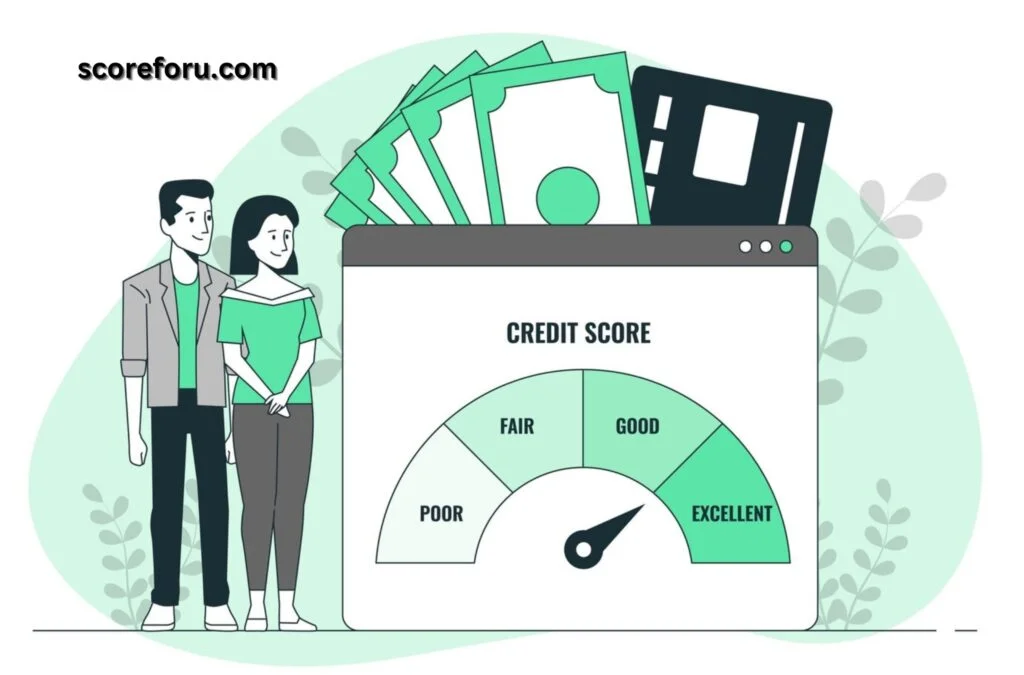When you hear the term “credit score,” what comes to mind? For many, it’s a mysterious number that can affect many aspects of life. But what exactly is a credit score, and why should you care about it? Let’s simplify and make it easily comprehensible.

What is a Credit Score?
Your creditworthiness is shown by your credit score, which is a three-digit figure. Lenders use this number to determine how likely you are to repay borrowed money. Think of it as a report card for your financial reliability.
Importance of Understanding Your Credit Score
Understanding your credit score is crucial because it can affect your ability to get loans, credit cards, and even housing. A good credit score can open doors, while a poor one can close them. So, let’s dive into the nitty-gritty of credit scores.
Understanding Credit Scores
What Makes Up a Credit Score?
Your credit score is composed of several factors, each contributing a different percentage to the total score. These factors include your payment history, credit utilization, length of credit history, new credit inquiries, and credit mix.
The Different Credit Score Ranges
Credit scores typically range from 300 to 850. Scores above 700 are considered good, while those below 600 are generally seen as poor. Knowing where your score falls can help you understand your financial standing.
Why Credit Scores Vary
Credit scores can vary depending on the credit bureau and the scoring model used. The most common models are FICO and Vantage Score, each with its own algorithm.
How Credit Scores Are Calculated
Payment History
This is the most significant factor, accounting for 35% of your score. It reflects whether you’ve paid your past credit accounts on time.
Credit Utilization
Credit utilization, which makes up 30% of your score, is the amount of credit you’re using compared to your credit limit. Keeping this ratio low is beneficial.
Length of Credit History
This factor contributes 15% to your score and considers the age of your oldest and newest accounts, along with the average age of all your accounts.
New Credit Inquiries
New credit inquiries account for 10% of your score. Frequently applying for credit might result in a worse credit score.
Credit Mix
The final 10% is based on the variety of credit accounts you have, including credit cards, mortgages, and installment loans.

Why Your Credit Score Matters
Impact on Loan Approvals
Lenders look at your credit score to decide if they should lend you money. Getting a better score makes you more likely to get accepted.
Influence on Interest Rates
A good credit score can help you secure lower interest rates on loans and credit cards, saving you money in the long run.
Credit Score and Renting
Landlords often check credit scores to assess potential tenants. A poor score might make it harder to find a place to rent.
Employment Considerations
Some employers check credit scores as part of their hiring process, particularly for roles that involve handling money.
How to Check Your Credit Score
Free Credit Report Sources
You can check your credit report for free once a year from each of the three major credit bureaus: Experian, TransUnion, and Equifax, through AnnualCreditReport.com.
How Often Should You Check?
It’s a good idea to check your credit score regularly to monitor for any inaccuracies or signs of identity theft. Quarterly checks can keep you informed.
Improving Your Credit Score
Pay Your Bills on Time
Late payments can significantly impact your score. Set up reminders or automatic payments to ensure you’re never late.
Reduce Debt
Work on paying down your debt, starting with the highest interest rate accounts. Reducing your debt improves your credit utilization ratio.
Avoid Opening New Accounts Frequently
Each new credit application can slightly lower your score. Be selective about when and why you apply for new credit.
Correct Errors on Your Credit Report
Mistakes on your credit report can drag your score down. Dispute any errors you find with the credit bureau.
Diversify Your Credit Types
Having a mix of credit types, such as a mortgage, car loan, and credit card, can positively impact your score.
Common Credit Score Myths
Closing Old Accounts Improves Score
Closing old accounts can actually hurt your score by reducing your available credit and shortening your credit history.
Checking Your Score Hurts It
Checking your own credit score is a soft inquiry and does not affect your scores. Only hard inquiries, like those from lenders, impact it.
Paying Off Debt Instantly Boosts Score
While paying off debt is great, it may take some time for your score to reflect these positive changes.
Credit Score Mistakes to Avoid
Missing Payments
Missing even a single payment can negatively impact your score. Always pay at least the minimum amount due.
Maxing Out Credit Cards
High credit utilization can lower your score. Aim to use less than 30% of your available credit.
Ignoring Your Credit Report
Regularly reviewing your credit report helps you catch errors and signs of fraud early.
Building Credit from Scratch
Secured Credit Cards
These cards require a deposit and are a good option for building credit from scratch.
Credit Builder Loans
These small loans are designed to help improve your credit score over time.
Becoming an Authorized User
Being added to a family member’s credit card as an authorized user can help you build credit without the responsibility of managing the account.
Rebuilding a Damaged Credit Score
Creating a Budget
A budget helps you manage your finances and ensure you can pay your bills on time.
Debt Management Plans
Consider a debt management plan to help you pay off your debt in a structured manner.
Professional Credit Counseling
Credit counselors can provide personalized advice to help you rebuild your credit.
Credit Scores and Major Life Decisions
Buying a House
A good credit score is essential for securing a mortgage with favorable terms.
Purchasing a Car
Your credit score affects the interest rate on auto loans, influencing the overall cost of the vehicle.
Starting a Business
A strong credit score can help you secure business loans and favorable terms.

Credit Score and Financial Health
Relationship Between Credit Score and Financial Well-being
A good credit score is often a sign of good financial health, reflecting responsible money management.
Long-term Benefits of a Good Credit Score
Maintaining a good credit score can save you money and stress over time, providing more financial opportunities.
Technological Advances in Credit Scoring
AI and Credit Scores
Artificial intelligence is being used to develop more accurate and inclusive credit scoring models.
Alternative Data Sources
New models are considering alternative data, such as utility payments and rental history, to assess creditworthiness.
Future Trends in Credit Scoring
Predictive Analytics
Predictive analytics are improving the accuracy of credit scoring by anticipating future behavior based on past trends.
Credit Scoring Innovations
Innovations in credit scoring are making it easier for people with limited credit history to build and maintain good credit.
Conclusion
Understanding and managing your credit score doesn’t have to be daunting. By knowing what factors influence your score and how to improve
